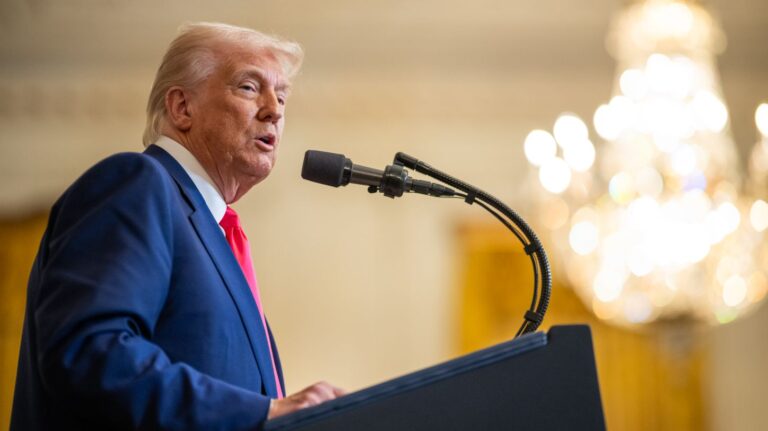US president Donald Trump has announced that, for a period of 90 days, there will be a “pause” on tariffs and a reduction to the baseline 10% rate for most of the world’s countries. He has, however, raised the tariff on China once again, while – as the 10% baseline rate didn’t apply to them – tariffs on Canada and Mexico remain unaffected.
In a post on social media platform Truth Social, the US president wrote: “Based on the lack of respect that China has shown to the world’s markets, I am hereby raising the tariff charged to China by the United States of America to 125%, effective immediately.”
UPDATE [11/04/25]: While the above statement seemed to suggest a total 125% tariff on China, CNBC has reported that White House officials have since clarified that the new 125% tariff is in addition to an existing 20% tariff relating to the fentanyl crisis. This tariff originally stood at 10% when first announced in February 2025, but was later amended to 20% “in recognition of the fact that the People’s Republic of China has not taken adequate steps to alleviate the illicit drug crisis”. At time of writing, no official document has been published by the White House confirming this.
Trump confirmed during a press conference in the Oval Office that he would be willing to meet with China’s president, Xi Jinping, who he described as “a friend”.
In the aforementioned social media post, he went on to say that, because “more than 75” countries called representatives of the US to negotiate a trade deal, he has “authorised a 90 day pause, and a substantially lowered reciprocal tariff during this period, of 10%, also effective immediately”.
“Somebody had to do what we did,” Trump said in a press conference announcing the pause. “I did a 90-day pause for the people who didn’t retaliate, because I told them ‘if you retaliate then we’re going to double it’. And that’s what I did with China because they did retaliate.”
Before the pause was announced, member states of the European Union voted in favour of the European Commission’s proposal to introduce trade countermeasures against the US. This comes after a 20% tariff was imposed on the EU on 2 April and other US tariffs impacting the EU, such as those on imported steel, aluminium and motor vehicles, came into effect.
Despite this announcement, the EU – it seems – will only be subject to the 10% baseline tariff.
Posting on X, president of the European Commission Ursula von der Leyen wrote: “I welcome president Trump’s announcement to pause reciprocal tariffs. It’s an important step towards stabilising the global economy. Clear, predictable conditions are essential for trade and supply chains to function.
“Tariffs are taxes that only hurt businesses and consumers. That’s why I’ve consistently advocated for a zero-for-zero tariff agreement between the European Union and the United States. The European Union remains committed to constructive negotiations with the United States, with the goal of achieving frictionless and mutually beneficial trade.”
She also alluded to the EU’s focus on “diversifying its trade partnerships, engaging with countries that account for 87% of global trade and share [the EU’s] commitment to a free and open exchange of goods, services and ideas.”
As yet, it is uncertain whether the EU’s planned countermeasures to US tariffs will go ahead in light of the 90-day pause announced by Trump after the vote.
The UK, already having been subject to just the baseline tariff, has not seen a reduction in tariff rate as a result of Trump’s latest announcement, but the pause on tariffs may come as a relief to the UK government as negotiations of a trade deal with the US continue.







